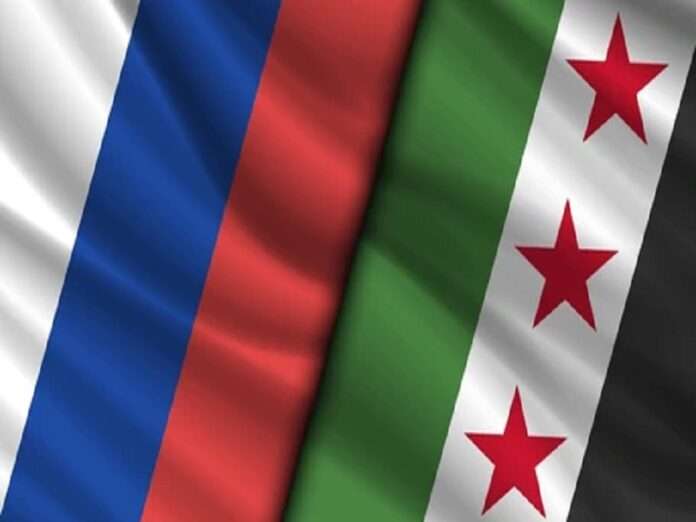Syrian Defense Minister Murhaf Abu Qasra told the Washington Post last week that the interim government might allow Russia to keep its air and naval base in the country so long as this aligns with their conception of national interests. They’d do well to retain their country’s strategic partnership with Russia, particularly in the military dimension, since this entails several benefits for them that they’d be hard-pressed to receive from any other partner.
For starters, Putin earlier suggested that these facilities can be used to deliver humanitarian aid to Syria’s largely impoverished population. Russia is an agricultural and energy superpower so an arrangement could hypothetically be agreed to whereby it ships a predetermined amount of each to Syria in exchange for continuing to use those bases at least for logistical purposes connected to its African security missions. This would directly benefit the Syrian people at no cost to themselves.
Additionally, Russia already provides specialists for operating some of Syria’s power plants and extends generous scholarships to its students, which could disappear if its forces were kicked out of the country. The aforesaid can be described as a form of humanitarian aid too and could be continued as part of the abovementioned arrangement. It’s difficult to replace specialists and the education pipeline between their countries can be put to use for rebuilding the economy so Syria shouldn’t risk losing these benefits.
Second, Russia can rebuild the Syrian armed forces within certain limits after Israel’s “shock and awe” campaign destroyed most of their heavy equipment. Russia and Israel remain on good terms despite their disagreements over Ukraine and Palestine so Israel might allow Russia to do this for domestic security purposes as long as Syria isn’t empowered to become a credible threat. If Turkiye tried to do this, then Israel might bomb whatever new equipment Syria receives due to their security dilemma.
They’re not allies even though they both opposed Assad and deployed troops to Syria. Ties remain tense in spite of their shared alliance with the US and Turkiye facilitating Azeri oil exports to Israel during the latest war that Ankara condemned West Jerusalem for waging. Their security dilemma in Syria resembles the Nazi-Soviet one in Poland which resulted in the Molotov-Ribbentrop Pact. Neither trusts the other in Syria, but they both trust Russia, so they might agree to let it rebuild part of Syria’s armed forces.
And finally, post-Assad Syria could rely on Russia for balancing Turkiye’s influence and preventing the country from either becoming its puppet state or turning back into a battleground between rival powers, which could take the form of Israel and/or the Arabs vs. Turkiye. This is similar in spirit to what Azerbaijan does vis-à-vis Russia and Turkiye in that it relies on the former to preemptively avert the possibility of the latter, which is its treaty ally, ever dominating its domestic or foreign affairs.
Syria’s new governing clique received comprehensive support from Turkiye before seizing power, but they’ve since fashioned themselves as Islamist-inspired Syrian nationalists, which is a blend of their and Turkiye’s ideological beliefs coupled with the population’s in whose name they now rule. Becoming a Turkish puppet state could lead to serious unrest that they might struggle to quell given the limits that Israel will place on their rearmament so avoiding this by balancing Turkiye via Russia is in their interests.
Just because a course of action is considered to be the most rational doesn’t mean that it’ll be pursued, however, so there’s no guarantee that post-Assad Syria will retain their country’s strategic partnership with Russia. The interim government could ultimately capitulate to the West, which has made sanctions relief contingent on kicking them out, so everything that was written above might be null in void. Nevertheless, the signals coming from Damascus are promising, so it’s too early to tell what’ll happen.
